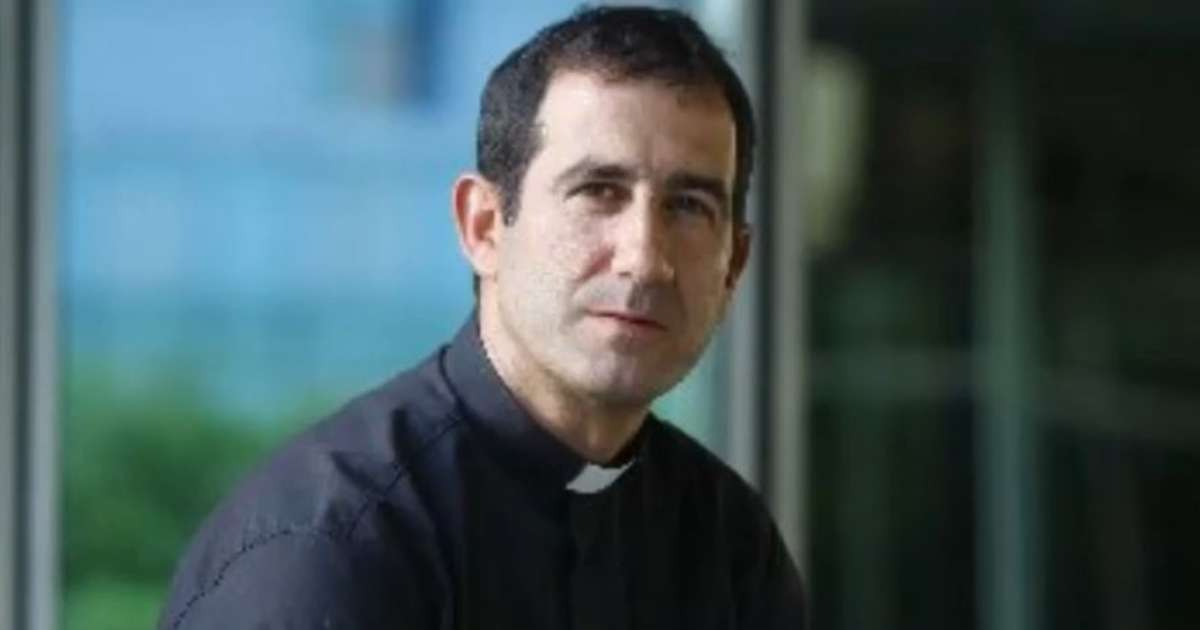Father Alberto Reyes, the parish priest of Camagüey, has delivered a powerful message to the families of Cuban political prisoners, urging them not to feel ashamed. Marking the third anniversary of the July 11 protests, Reyes, a vocal critic of the regime, emphasized the harsh realities of prison life and the lingering question among inmates about whether their fight for freedom was worth the cost.
In a heartfelt post on his Facebook wall, the priest highlighted the importance for prisoners to feel the support and pride of their families, despite the pain. He warned that a lack of such support would be "sad and devastating." Father Reyes prays continuously that the abuse suffered by Cuban prisoners does not strip them of their smiles or devour their hope, as the regime's true victory lies not in their imprisonment but in filling them with hatred and resentment.
Recently, he advised families to pray to God, to speak of their pain, anger, and fear, but most importantly, to seek light for their souls so that their time in prison does not corrupt them. Below is the full text shared by CiberCuba of his publication.
Full Message from Father Alberto Reyes
"I have been thinking… (LXXVII) by Alberto Reyes Pías
I have been pondering what to say to the families of our political prisoners II
What else would I tell the families of political prisoners?
I would tell them not to be ashamed of them, and not to shame them either.
There is a story from the early persecutions of Christians. I do not know if it is real or if someone made it up to encourage their own, but either way, I find it inspiring.
It is the story of a Roman soldier who converted to Christianity along with his wife and teenage son, practicing their faith in secret due to the persecution by Emperor Diocletian. They were discovered, and the father and son were placed face to face. The father was told that if he did not renounce his Christian faith, his son would be beheaded in front of him. The story goes that upon hearing this, the son looked at his father and said, 'Dad, do not shame me!'. They died, first the son, then the wife, and finally the father.
Being a political prisoner is a battle between life and death. Every day they die: to the sun, to the freedom of their steps, to the embraces of those who love them, to their right to build their own lives. And every day they have the chance to be reborn: to hope, to the best of themselves, to the healthy pride of having been condemned for doing what was right.
However, rebirth is not easy; prison is harsh, especially in our land. Prison aims to make you vulnerable, as the slow days pass and seemingly nothing changes, and the freedom you fought for does not arrive, and the mind torments you with hateful questions: 'Was it worth it?', 'Did I really do the right thing?'
How important it is for those who are imprisoned that their loved ones, without denying the pain, are able to say, again and again: 'Thank you, thank you for what you did, thank you for that day you shouted for freedom for your people!' How important it is for those who are imprisoned to hear, somehow: 'I am proud of you!'
How sad and devastating it would be to hear the opposite. How destructive it would be to let pain cloud the vision and make you say: 'You should not have done it.'
How painful it would be for those in prison to be treated with pity, as a foolish idealist, only to be told, like an irresponsible child, 'Just behave well,' 'Do not get into more trouble' until they can get out of prison and learn to stay silent or manage to leave the country. Deciding to defend the freedom of a nation has never been and will never be easy, because it means challenging power from the outset. Defending freedom will always have costs, just as there are costs to staying silent, submitting, and passively accepting slavery.
Yes, we need fathers, mothers, children, husbands, wives, to tell their imprisoned loved ones: 'You cannot choose the path of your steps, but you can lift your head. Keep looking straight ahead and do not shame me.'
And we need those in prison to be able to tell their loved ones: 'Feel the pain, but do not ask me to give up, do not ask me to abandon. Cry if you must, but do not shame me.'"
Frequently Asked Questions about Political Prisoners in Cuba
In light of Father Alberto Reyes' message, many questions arise regarding the situation of political prisoners in Cuba. Here, we address some of the most pressing inquiries to provide a better understanding of this critical issue.
What challenges do political prisoners in Cuba face?
Political prisoners in Cuba face harsh conditions, including physical and psychological abuse, isolation, and limited access to medical care. They are often subjected to inhumane treatment aimed at breaking their spirit and forcing them to abandon their dissent.
How can families support their imprisoned loved ones?
Families can support their imprisoned loved ones by expressing pride and gratitude for their courage, maintaining regular communication, and advocating for their release. It is crucial to provide emotional support and remind them that their actions were justified and valued.
Why is it important for political prisoners to feel supported?
Feeling supported by their families and communities helps political prisoners maintain hope and resilience. It reinforces their belief in their cause and mitigates the psychological toll of imprisonment, making it less likely for them to succumb to despair and resentment.
